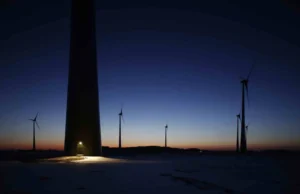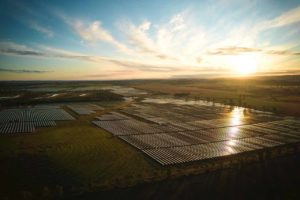As an increasingly divided Turnbull government rules out any new policy tools to cut power sector emissions or boost renewable energy development, Victoria’s Labor government has upped the ante on climate action, pledging to cut state emissions by up to 20 per cent within three years on the road to its ultimate target of zero net emissions by 2050.
The new interim target, announced by Victoria’s energy and climate minister Lily D’Ambrosio on Sunday, aims to cut the state’s greenhouse gas emissions by between 15-20 per cent from 2005 levels by 2020.
Details on how the Andrews government aims to meet that target were released alongside the party’s Climate Change Framework, which maps out a plan to 2020 to put it on track for its 2050 goal.
As has been noted, the majority of the 2020 target will be met through the March closure of the state’s Hazelwood coal power station, following a decision made by the plant’s French owners, Engie, last year. But it will also require other cuts through energy efficiency and renewable energy programs.
The state has set renewable energy targets of 25 per cent by 2020 and 40 per cent by 2025, on which it is currently being advised by former ACT climate minister and renewables policy mastermind, Simon Corbell.
Adding to Victoria’s emissions reduction momentum will be the TAKE2 program – Australia’s first state government-led climate change pledging program, which calls on local governments, schools and businesses to take action to reduce emissions.
As part of the program, the Andrews government has pledged to reduce its reported emissions from government operations by 30 per cent below 2015 levels by 2020.
However it winds up being reached, the new target puts Victoria at the front of the pack on government climate ambition, further highlights the disconnect between the states and Canberra, and tightens the screws on a PM faced with renewed internal discord on climate and renewables.
In a speech at a Young Liberals conference in Adelaide on Sunday, former PM Tony Abbott called on Turnbull to scrap the RET – an electoral promise he himself was never able to fulfil – and said that the party’s “first big fight this year must be to stop any further mandatory use of renewable power.”

Frequent assurances from both Turnbull and Frydenberg that the national RET will not be increased, and the complete absence of any renewables target beyond 2020, suggest Abbott & Co have little to worry about on that count.
But according to a report released by Melbourne-based carbon consultancy RepuTex on Monday, the renewable targets set by Labor state governments in Queensland, South Australia, Victoria and the ACT are combining to effectively increase the federal RET to 35 per cent by 2030.
Ultimately, this could serve Turnbull’s duplicitous climate stance well – we look forward to what the PM has to say on renewables and climate in his press club address on Wednesday. But right now, it puts him in a rather uncomfortable spot.
Of course, the Turnbull government, which last week stepped up its promotion of “clean coal” as a key climate solution, isn’t the only one accused of climate hypocrisy.
Victorian environmental group Friends of the Earth has called out the Andrews government’s approval of an expansion to the Loy Yang B coal power plant – a neighbour of Hazelwood in the state’s Latrobe Valley – as “deeply irresponsible” and at odds with its ambition on climate change.
In what the FOE describes as a case of unfortunate timing, Victoria’s Environment Protection Authority approved the coal project just a day after the emissions reductions target of up to 20 per cent by 2020 was released.
“When you’re in a hole you stop digging,” said FOE campaigns coordinator Leigh Embank in a statement on Monday. “This decision does nothing to protect Victorian communities from the impacts of climate change.
“The Andrews government can articulate its commitment to leading on climate change in its forthcoming coal policy,” Ewbank added. “Misalignment between state climate and energy policy can be resolved. It’s why we need the upper house to pass the Climate Change Act and a smart coal policy from the Andrews government.”
RenewEconomy contacted Minister D’ambrosio’s office for comment on the FoE criticisms, as well as for more detail on its 2020 emissions target, but had not received a response to its questions by then time of publication.










